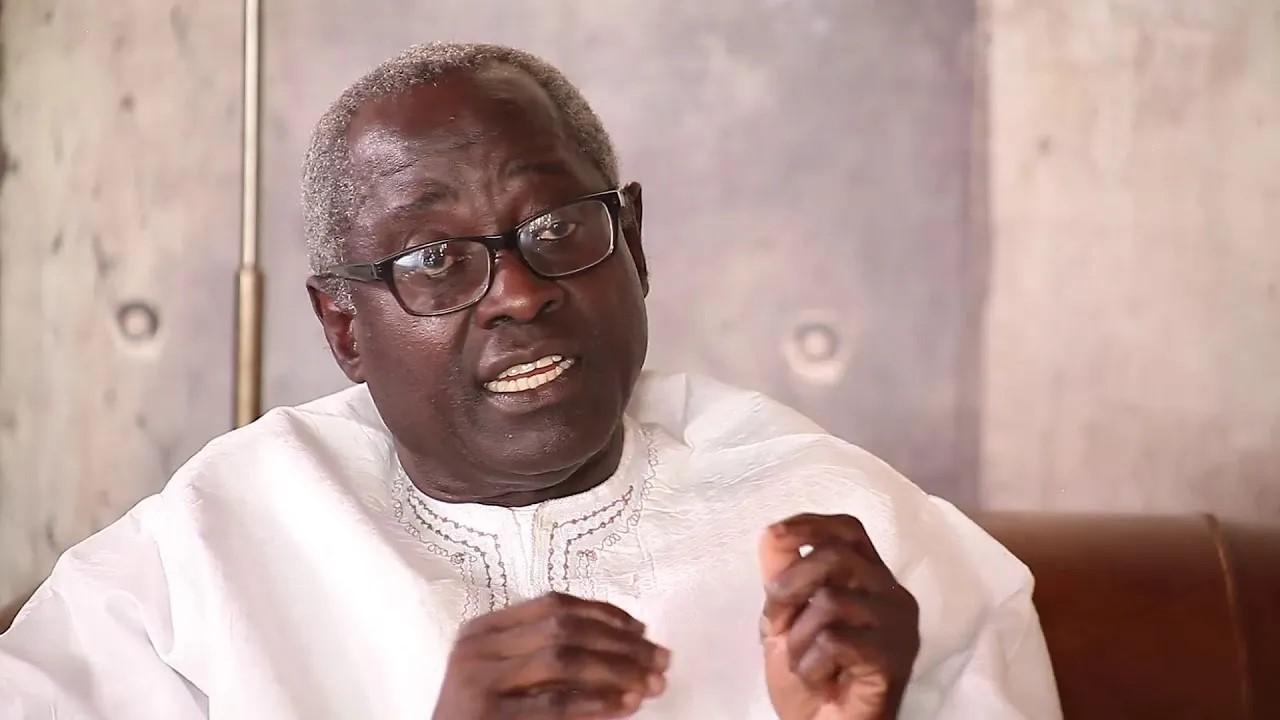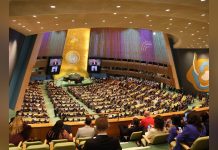By Dr Lamin K Janneh
Africa-Press – Gambia. This letter is not written in reaction, but in reflection, on tone, on substance, and on responsibility. My initial open letter was addressed to a revered elder, grounded in the sincere belief that public intellectuals and political figures must create space for honest intergenerational dialogue, free from retaliation, distortion, or dismissal.
I now write in response to your reply dated 16th May 2025, not to attack you, nor to discredit your party, but because your letter raised important assertions, posed challenges, and offered invitations that merit respectful and unambiguous engagement. Let me address these matters, firmly, but fairly.
1. Condescension does not refute truth
My second letter was not personal. It was a point-by-point reply to the questions and issues embedded within your response. I answered a public invitation with public accountability. If those answers now feel inconvenient, it is not because they were disrespectful, but because they were concrete.
Authentic leadership prepares others to lead. It does not overshadow them to preserve a monopoly when it is time to step aside. The tendency to use poetic derision to suppress critique narrows, rather than deepens, public discourse. Gambians are fully capable of reading not only your words, but the tone beneath them.
Dismissive language cannot alter facts. It merely reveals discomfort with those facts. And no amount of rhetorical flourish can obscure the growing resolve of Gambians to hold all public officers to account. We are in a new era. The public is paying attention. As I previously noted: Many young Gambian technocrats are ready and capable. They are no longer asking for space; they are creating it themselves.
2. I did not initiate this exchange, I responded to an invitation
Let us recall the context. I did not begin this public discourse as a critic. I raised legitimate concerns about political succession, national transformation, and the future of inclusive governance. Your first reply explicitly invited me to offer alternatives, name potential leaders, and propose a vision.
My subsequent letter answered that call, with structure, with ideas, and with responsibility. To now criticise that response as ambitious or disrespectful is not accurate. It was neither. It was a fulfilment of the very invitation you extended.
3. The blueprint was not a manifesto; it was a structured beginning
You criticised my technocratic outline for lacking a full policy framework. But no serious planner embeds an entire national agenda into a newspaper letter. The blueprint I presented was never a manifesto. It was a strategic foundation for national dialogue, grounded in tested practices.
I highlighted actionable priorities:
· Education and labour market alignment
· Renewable energy infrastructure
· Agro-industrial development
· Digital governance and e-services
· Anti-corruption tools and fiscal transparency
· Youth upskilling and employment innovation
These are not slogans. They are measurable policy interventions. Since publication, I have received positive engagement from both local and international development experts interested in these ideas. To critique the format rather than the substance is to sidestep serious engagement.
3. A misreading does not invalidate content
You claimed that my proposals failed to address poverty or unemployment. Respectfully, that is incorrect. Both are central to the blueprint and addressed through interventions such as:
· A national digital upskilling programme for youth
· Agro-processing hubs to increase rural income
· Incentives for youth-led start-ups
· Vocational education aligned to market needs
· Green energy initiatives that generate jobs
· Infrastructure projects fostering employment
These are not peripheral, they are foundational. Your reading suggests the response was not read to understand, but to rebut. Let us elevate the discourse. The Gambian people deserve considered analysis, not rhetorical detours.
4. Referencing other nations is not imitation, it is informed benchmarking
You dismissed my reference to Kenya, Rwanda, Senegal, and Estonia due to their debt burdens or limitations. But development models are not accepted wholesale. They are studied, adapted, and selectively applied.
Kenya’s M-Pesa, Rwanda’s decentralised service model, and Estonia’s digital infrastructure are not perfect, but they offer valuable lessons. To reject lessons solely because they originate elsewhere is not Pan-Africanism. It is policy isolationism.
Debt is a fiscal reality in nearly all nations. What matters is how effectively we use borrowed capital for national transformation. Strategic borrowing for productive investment is a mark of pragmatic governance.
5. “The people want me back” is a familiar political excuse
You suggested that your political return is driven by public demand. This refrain is common across the continent. It is often used to delay transitions and justify continued personal control.
True leadership is not about individual indispensability. It is about institutional maturity. If, after four decades, your party cannot name a clear successor, that is not public endorsement, it is organisational stagnation.
Legacy must empower others, not depend on one’s continued presence.
6. Political biography is not a substitute for present-day reform
Your reply focused heavily on PDOIS’s history and achievements. That legacy should be respected. However, my open letter did not contest your past; it interrogated your present positioning.
You introduced PDOIS into the discourse, and rightly so. I must then ask: What institutional mechanisms has PDOIS developed to ensure leadership transition? Reciting names from the past is not the same as preparing systems for the future. History is not a destination; rather, it is a reference. History should not be a hiding place. It should be a foundation for evolution.
7. On tone, intent, and role
You have suggested that my tone has shifted. In a sense, that is true, but not in the manner you imply. My tone has not changed in hostility, but in clarity. It has not become confrontational, but mature in precision and purpose.
When I first wrote, I did so as a concerned Gambian who believed your legacy should be preserved with the same standards you have long championed. I now write with determination. However, your reply challenged not only myself, but my generation. The issues we face as a nation demand a tone not of perpetual courtesy, but of strategic urgency.
I remain anchored in respect. But respect must not be confused with silence. Nor should critique be mistaken for contempt. I do not speak on behalf of any party or faction. I do not seek political office. I write as a citizen with a civic conscience and professional experience. Answering questions placed into the public domain is not provocation, it is intellectual accountability.
8. Selective publication undermines public dialogue about my op-ed (opinion editorial).
It is worth noting that the newspaper associated with your office, “Foroyaa” chose not to publish the full content of my response, particularly omitting the section detailing the strategic blueprint for national development. That section included measurable interventions in education, energy, agriculture, digital governance, and employment creation, precisely the kind of substance our national discourse desperately needs.
You have stated that no Gambian should take my ideas seriously. Yet the actions of your editorial platform have pre-empted the very choice you claim the Gambian people should exercise for themselves. When solutions are filtered out, not on the basis of merit but of perceived ideological difference, it raises serious questions about your stated commitment to divergent views and intergenerational dialogue.
This editorial censorship does not serve democracy. It narrows the space for innovation, silences viable alternatives, and underestimates the public’s ability to engage critically with competing visions.
If we are to build a mature, open, and reflective democracy, then all credible contributions, especially those rooted in technical and policy-based reasoning, deserve to be heard in full.
9. The way forward: co-creation, not circular rebuttals
Rather than prolong rebuttals, I propose a new direction:
Let us co-convene a National Forum on Political Transition and Institutional Innovation. Let this forum include political leaders, governance experts, youth innovators, economists, civil society, and the diaspora.
Let the forum aim to:
· Define “system change” in terms fit for today’s realities
· Propose reform-ready governance frameworks
· Align national development with generational equity
Let us move beyond rhetoric to structure. Let us replace sentiment with sustainability. The Gambia must not circle the same debates. It must advance with clarity, courage, and collective responsibility.
Final Note
Let it be categorically clear: this letter is written not in reaction, but in reflection. My initial letter to you, Uncle Halifa, was rooted in respect and the need for adherance to your own standard.
The task before us is national. It transcends personalities. It demands boldness, patience, and vision. Let us be remembered not for our resistance to change, but for our courage to shape it.
Source: The Standard Newspaper | Gambia
For More News And Analysis About Gambia Follow Africa-Press






